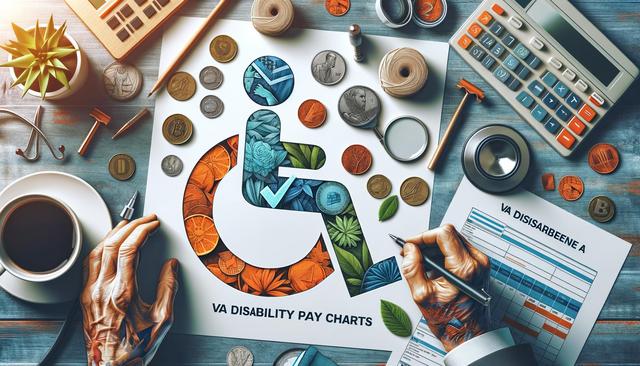Overview of VA Dental Benefits for Veterans
Dental care is an essential part of overall health, and for many veterans, the U.S. Department of Veterans Affairs (VA) offers dental benefits through its healthcare system. However, not all veterans automatically qualify for these services. The eligibility for VA dental benefits is determined by a variety of criteria, including the veteran’s service-connected disability status, enrollment in the VA healthcare program, and other specific conditions related to military service. Understanding these requirements is the first step in determining whether a veteran can access dental care through the VA.
VA dental benefits are categorized under different classes, each of which has its own set of qualification standards. These classes help determine the level of dental care provided, ranging from emergency treatment to full dental services. The system aims to prioritize veterans with service-connected dental issues or those facing significant health challenges. Recognizing what class a veteran falls into can help them understand what care they may be entitled to receive.
Eligibility Classes and Their Requirements
The VA has established several classes for dental eligibility, and veterans must meet the criteria of at least one class to receive dental care. The most common eligibility classes include:
- Class I: Veterans with a service-connected compensable dental condition or disability.
- Class II: Veterans who apply for dental care within 180 days of discharge from active duty under certain conditions.
- Class IIA: Veterans with non-compensable service-connected dental conditions resulting from combat wounds or service trauma.
- Class IIB: Veterans enrolled in VA healthcare and classified as homeless or receiving care under specific VA homeless programs.
- Class III: Veterans with a dental condition that is aggravating a service-connected medical condition.
- Class IV: Veterans with a 100% disability rating due to service-connected conditions or who are receiving total disability based on individual unemployability (TDIU).
The VA uses these classifications to ensure that dental care is provided to those who need it most, especially when oral health has a direct impact on their overall medical condition or quality of life.
How Service-Connected Disabilities Affect Dental Eligibility
A primary factor in determining VA dental benefits eligibility is whether a veteran has a service-connected disability that affects their dental health. If a veteran has a dental condition that is officially recognized as connected to their military service and is compensable, they may qualify under Class I for comprehensive dental care. In these cases, the VA covers all necessary dental services, which may include:
- Routine cleanings and exams
- Restorative procedures such as fillings and crowns
- Oral surgery, including extractions
- Prosthodontic services like dentures
Veterans without a service-connected dental issue may still qualify under other classes, but the scope of benefits is often more limited. For instance, veterans who are rated 100% disabled due to service-connected conditions will usually receive comprehensive dental coverage under Class IV, even if their dental issues are not directly related to their service.
Applying for VA Dental Benefits
Veterans interested in accessing VA dental benefits must first be enrolled in the VA healthcare system. Enrollment can be done online, by phone, through the mail, or in person at a VA medical center. Once enrolled, veterans can apply for dental benefits by submitting VA Form 10-10EZ or through their local VA dental clinic. The application process involves verification of service history, current health status, and any service-connected disabilities.
Veterans should be prepared to provide documentation, including:
- Military discharge papers (DD214)
- VA disability rating decisions
- Proof of enrollment in VA healthcare
After reviewing the submitted information, the VA will determine the appropriate eligibility class and notify the veteran of the dental services available to them. Veterans who are not eligible for VA dental care may consider other options, such as private dental insurance or community dental clinics that offer reduced-cost services.
Additional Resources and Alternatives
For those who do not qualify for VA dental benefits, there are still resources available to help meet oral health needs. Some veterans may access dental care through federally qualified health centers, state dental programs, or dental schools that provide services at lower costs. Additionally, the VA partners with organizations through the VA Dental Insurance Program (VADIP), which offers discounted dental insurance plans to eligible veterans and their family members.
Here are a few alternatives to consider:
- Community health centers offering sliding fee scales based on income
- Nonprofit organizations focused on veteran health
- Local dental school clinics
- Participation in the VA Dental Insurance Program (VADIP)
While VA dental coverage is not universally available to all veterans, understanding the eligibility criteria can help individuals take advantage of the resources that are available. Veterans are encouraged to consult with their VA care coordinator or a local Veteran Service Officer (VSO) to explore their options and get assistance with the application process.
Conclusion: Navigating Dental Benefits as a Veteran
Qualifying for VA dental benefits involves understanding a complex system of eligibility classes and service requirements. While not every veteran will receive comprehensive dental coverage, those with service-connected disabilities or specific health conditions may be entitled to significant care. Exploring all available resources, including VA programs and community health options, can help veterans maintain their oral health and overall well-being. Veterans should stay informed, ask questions, and seek guidance from VA representatives to ensure they receive the care they’ve earned through their service.


